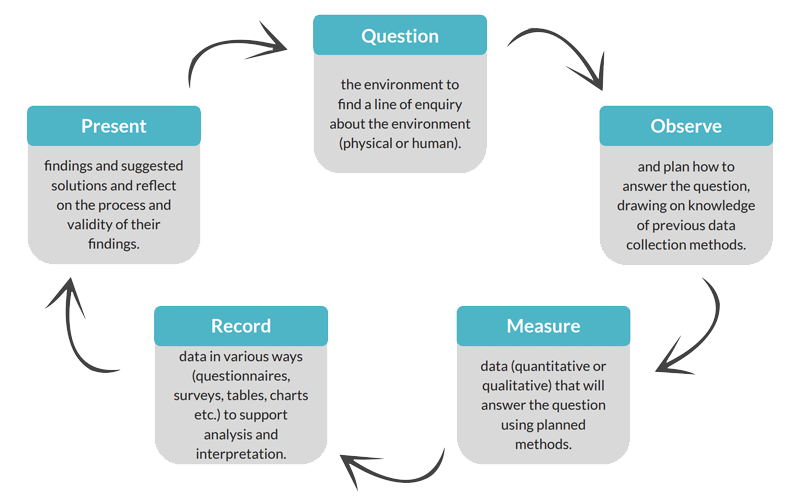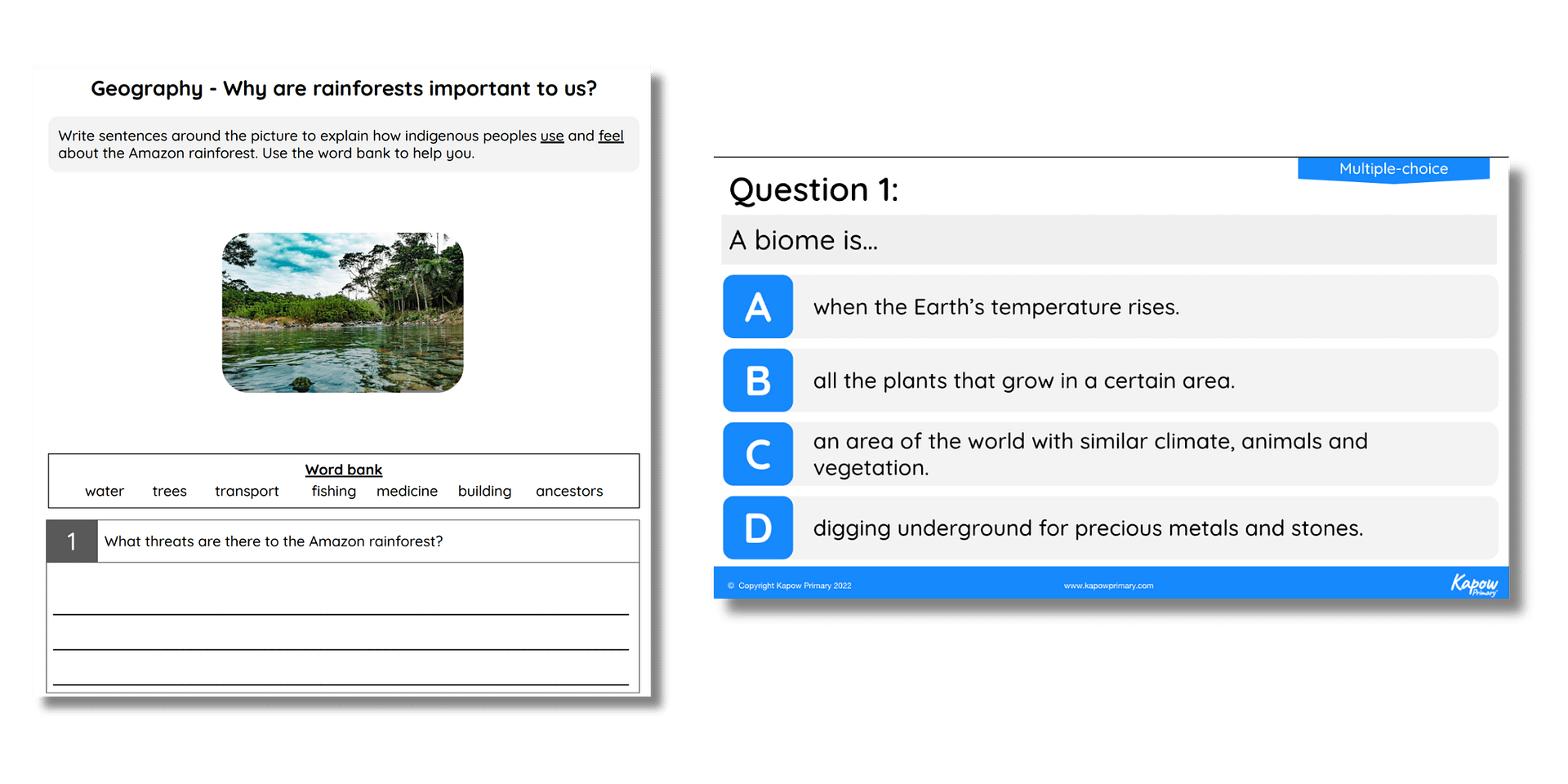What Can We Learn From Ofsted’s Subject Report For Geography?
Written by Kapow Primary
Published on 1st November 2023
Last Updated: 1st November 2023
Written by Kapow Primary
Published on 1st November 2023
Last Updated: 1st November 2023

In September 2023, Ofsted published Getting our bearings: Geography subject report offering insights into the teaching of primary Geography in England.
This comprehensive report covers Geography education across both primary and secondary schools. We have summarised the most relevant points for primary school leaders and teachers.
In this blog we look at:
In the press release following the report, His Majesty’s Chief Inspector Amanda Spielman said:
“Geography is vital to children’s understanding of our physical world. It’s great that both primary and secondary schools have made such strides in their geography teaching. Pupils are now being taught a much more ambitious and challenging curriculum. I hope that schools can now focus on ensuring that children get more opportunities to develop their data collection and analysis skills so they can master the fundamentals of geography fieldwork.”
Ofsted notes significant improvements in Geography education in the last 12 years since Geography: learning to make a world of difference was published. The new report emphasises that almost all primary schools now teach distinct Geography lessons, elevating the subject’s prominence within school curriculums.
There have been many more positive developments in the teaching of the Geography curriculum, including:
Curriculum planning has improved; leaders are better at identifying exactly what should be taught and how pupils’ knowledge and capabilities should build over a topic.
Ofsted found that curriculum content is more ambitious, with more schools including geographical enquiry questions in each topic.
In most schools, pupils are working towards the same curriculum goals, including pupils with special educational needs and/or disabilities (SEND).
It was also noted that EYFS children are being introduced to more geographical content, particularly regarding geographical vocabulary.
In most Geography lessons, teachers have the subject knowledge necessary to teach effectively. On the whole, teachers plan for, spot and address misconceptions, and provide rich examples and anecdotes to help bring abstract ideas to life.
In schools where pupil knowledge is strongest, pupils recall knowledge until they are fluent in it and then, later in the lesson, apply this knowledge in a new context.
Teachers are using formative assessment in lessons to check for understanding effectively and are using this information to help plan subsequent lessons.
The report identified several areas in which schools need to develop further to improve the standard of Geography teaching and learning.
In many schools, fieldwork is “underdeveloped” and pupils do not have sufficient opportunities to learn and develop their fieldwork skills. Pupils may go out of school on a visit, but they rarely learn how to collect, present and analyse geographical fieldwork data when they do so.
There is a need for better support and more subject-specific CPD for both specialist and non-specialist teachers. Teachers can “miss pupils’ misconceptions and sometimes even pass them on to the pupils in their class”.
Evidence collated by Ofsted reveals a “huge variation” in the amount of Geography education primary pupils receive. Some schools have one hour a week for half the year, with others having as much as two hours a week throughout the year.
Ofsted identified limited knowledge-building across Geography topics. Furthermore, in key stage 1, pupil knowledge does not always go much beyond what pupils have already learnt by the end of Reception.
The report also highlights disciplinary knowledge (how geographical knowledge is formed, debated and contested) as a weaker area of curriculum thinking in both primary and secondary schools, as key geographical concepts have not been identified beforehand.
The curriculum in some schools does not match the scope and ambition of the national curriculum. When teaching about ‘place’, Ofsted found schools using outdated and inaccurate resources.
A further observation about the curriculum is that when schools combine History and Geography into a topic, History usually takes precedence.
The Ofsted report outlines the following suggestions for how schools can ensure that all pupils receive a high-quality Geography education:
Kapow Primary Geography was developed following research on the challenges facing teachers. Consequently, there is a strong focus on developing fieldwork skills and providing CPD for teachers and subject leaders. The scheme is designed to be taught for an hour a week over three half-terms.
The Kapow Primary Geography scheme addresses the recommendations made by Ofsted in several ways:
Planning supports transitions between year groups as well as key stages:
Every Geography unit includes fieldwork based on enquiry questions as part of the Kapow Primary enquiry cycle. This allows children to apply the skills and knowledge they have learnt during the unit and ensures the development of fieldwork skills. Fieldwork opportunities are accessible with suggestions for alternative locations where relevant.

Kapow Primary Geography includes integrated CPD in teacher videos and within the ‘teacher knowledge’ section of the lesson plans. These invaluable resources support teachers with subject knowledge and identify possible misconceptions, enabling them to deliver quality lessons with confidence.

Assessment resources from our Geography unit Year3/4:Why are rainforests important to us?
The Ofsted report indicates that we are indeed “getting our bearings” when it comes to teaching Geography in primary schools. There have been considerable improvements in the last few years, in particular around curriculum planning. However, some of the suggested recommendations, such as developing fieldwork or upskilling teachers with CPD are difficult to achieve. Kapow Primary Geography has integrated CPD and a fieldwork focus in every unit, making it easier for schools to include these elements in their Geography curriculums and provide a better-quality learning experience.